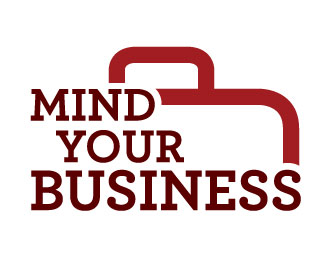What the past 2 years have taught this firm about talent development

Image from Shutterstock.
At the end of November, the 2022 Report on the State of the Legal Market: A Challenging Road to Recovery noted, “all law firms were edging dangerously close to losing almost one-quarter of their associates in 2021.”
That statistic reflects just how drastic—and rapid—the change in the talent landscape has been during the pandemic. In the past two years alone, we went from rising unemployment rates to the “Great Resignation” to where I believe we stand now: the Great Reevaluation of Priorities. Today’s workers care about who they work for and how and where they do so more than ever before. They want more ownership over their careers and recognize that work is personal. Now, our talent strategies must align with those preferences.
In the midst of all this change, the road ahead for law firm leaders might seem daunting. But my experience over the last year and a half leading a global law firm with more than 1,600 attorneys spread over 100 offices has also shown me that this is a moment of real opportunity—one where we can reinvigorate and reshape how we develop, retain and attract talent in the legal industry.
Below are four key takeaways that have emerged from Littler Mendelson’s experience and we continue to focus on as we look to the future.

Offer choice in career trajectories
The pandemic has forced people to really think about the intersection of their personal and professional lives, including how they want to develop their careers. In the legal industry, that can translate to lawyers seeking alternatives to the traditional associate-to-partner track. Law firm leaders should, therefore, empower their attorneys with choice: the opportunity to direct their own career trajectories in a way that is in sync with their goals, preferences, interests and personal lives.
That means providing options, whether it’s the ability to carve out specific subject matter knowledge in a given practice group or offering pathways that recognize people have different interests or are at different stages of their careers.
For instance, Littler CaseSmart, which launched in 2010 as a platform for managing employment litigation, created the LCS counsel position. LCS counsel work within the platform and focus on a distinct area of the legal process (research, discovery, brief writing, etc.). This enables them to build skills within a specific area of interest as well as the opportunity to advance to positions with more management responsibility. We started with 12 LCS counsel when the platform launched, and the team has grown to nearly 100.
In addition to the pandemic accelerating interest in the role, there has been an evolution in the reasons lawyers are pursuing it. In the early days, those looking for roles that didn’t fit the associate-to-partner path were doing so because of particular life circumstances (e.g., new parents, caregivers, those nearing retirement). Now, as people have reflected on what is important to them, it’s really every type of lawyer who, for a wide range of reasons, decides that they want something different out of their careers.
Commit to mentorship and IE&D
As law firm leaders reassess their talent strategies, mentorship and inclusion, equity and diversity must be top of mind.
A strong commitment to IE&D has never been more paramount than in the wake of the inequities exacerbated by the pandemic and the powerful movement for social justice. As we look toward a post-pandemic future, we continue to focus on refreshing and further investing in several initiatives to help recruit and retain diverse lawyers.
For instance, Littler was an early adopter of affinity groups, which provide support, development, networking opportunities and a launchpad for creating affinity-focused communications and programs. In addition to our existing groups—Bollo (Black/African American); ‘Ohana (Asian, South Asian, Middle Eastern, North African and Pacific Islander); Pride (LGBTQ+); and Reunión (Hispanic/Latinx) as well as our Women’s Leadership Initiative—we launched two new affinity groups in late 2021 for veterans and for individuals with disabilities. Our affinity groups are open to all firm employees and allies of each group. Particularly during difficult times and with fewer opportunities for in-person interaction, we found that these groups provide an important forum for our team members to share strategies for success, engage in business development planning, establish mentorship relationships, and celebrate and embrace the unique qualities that each individual brings to the firm.
Recruiting and hiring practices is another key focus area for IE&D efforts. Fortunately, in our latest annual survey of nearly 1,300 employers, we found that revising recruiting and hiring practices is the top step companies in all industries have taken over the past year to advance their IE&D goals. This is a promising sign that employers are reconsidering common elements of job descriptions that may no longer be necessary in the new world of work and taking a more flexible approach to get more diverse candidates in the door.
At Littler, we have not only embraced changes to our recruiting practices but also recognized that we must continuously evolve how we support and elevate our diverse talent once they’re brought on. That’s why, in April 2022, we announced our rebranded Littler SOAR Program, which pairs newly hired diverse associates with a shareholder mentor to help them successfully integrate into the firm during their crucial first few months.
Create a culture of innovation
It’s long been critical for law firms to develop new technology solutions and processes for serving clients, but the pandemic put a spotlight on just how critical these innovations are. For instance, a 2021 Wolters Kluwer survey found that law firms who lead the way on technology were more able to weather the pandemic, better positioned to expand their business and were more productive.
Crucially, technology can help attract and retain talent as well. Yet this requires going beyond a top-down approach and creating a true culture of innovation—one that drives more collaboration, transparency and opportunities to bring new ideas that benefit both clients and colleagues.
One way leaders can operationalize this is by offering incentives that encourage attorneys to present new ideas and by providing the support to bring those ideas to fruition. For instance, we host an annual Innovate 100 hackathon-style event for Littler attorneys around the globe to come up with the firm’s next big innovation; the winning teams receive the support to build out and develop their proposed concepts. In addition, our biennial Wesley J. Fastiff Ingenuity Award, which is open to all employees, was designed to inspire creativity and new ideas from across the firm and provides a cash prize to the winning team.
It’s important to remember that technology—like a comprehensive, easy-to-use knowledge management infrastructure—can also help both attorneys and professional staff do their jobs more efficiently and effectively, thereby improving job satisfaction and bolstering retention.
Adaptability over flexibility
The fundamental changes to how we work is just one of the many ways the pandemic has taught us to better embrace change and uncertainty. In response, leaders have stressed the importance of flexibility.
Yet while flexibility is important for recruiting and retaining talent, it must go beyond simply offering remote and hybrid working models. One key lesson that has emerged for us during the pandemic is to recognize that someone’s chosen path today could be different tomorrow, and that is perfectly fine. In fact, as leaders, it’s our job to adapt to what our employees are telling us they need. We want attorneys to see Littler as a place where they can spend their careers—and that means acknowledging they will inevitably experience changes in their personal and professional needs over time.
The Great Reevaluation of Priorities is here. Rather than seeing it as a roadblock, law firm leaders should view it as an opportunity to reevaluate their talent strategies and priorities.
Erin Webber is president and managing director of Littler Mendelson, the world’s largest employment and labor law firm. She guides the strategic direction of the firm across core areas, including talent development and recruitment; inclusion, equity and diversity; global expansion and innovation. She also oversees the management and operations of Littler’s more than 1,600 attorneys and offices worldwide.
Mind Your Business is a series of columns written by lawyers, legal professionals and others within the legal industry. The purpose of these columns is to offer practical guidance for attorneys on how to run their practices, provide information about the latest trends in legal technology and how it can help lawyers work more efficiently and strategies for building a thriving business.
Interested in contributing a column? Send a query to [email protected].
This column reflects the opinions of the author and not necessarily the views of the ABA Journal—or the American Bar Association.



